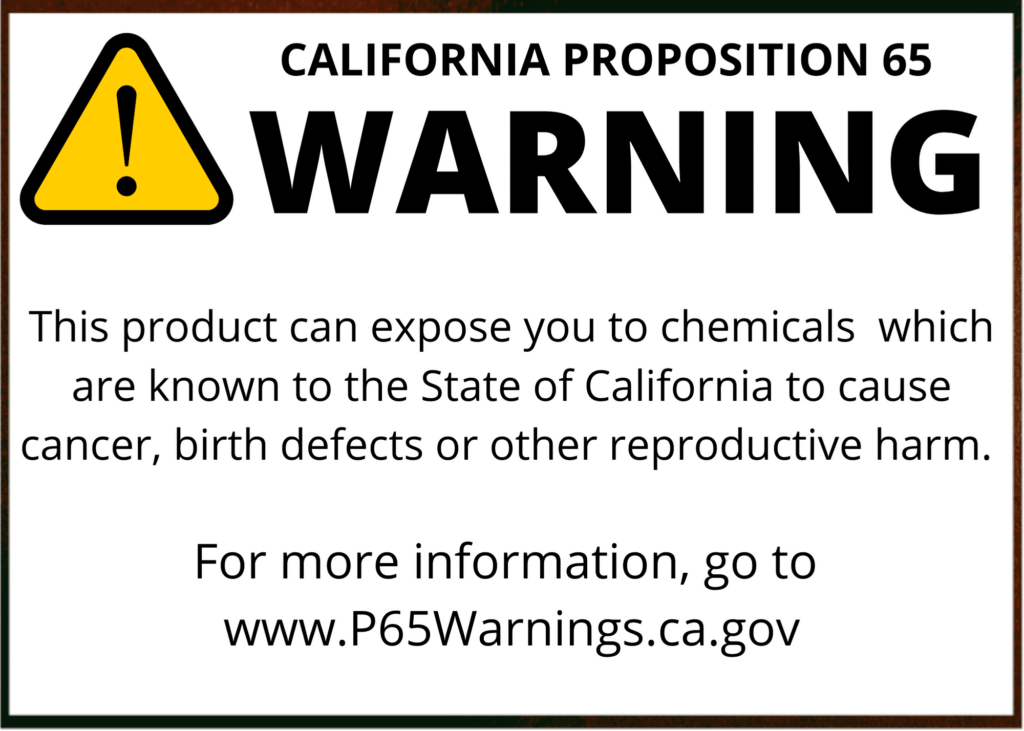What You Should Know About Prop 65 Percolates
For Those In a Rush
- There is no evidence that coffee causes cancer.
- Multiple studies have found no link between coffee consumption and increased cancer risk.
- The World Health Organization’s International Agency for Research on Cancer (IARC) concluded that coffee is not carcinogenic.
- Coffee may actually have protective effects against certain types of cancer, including liver and endometrial cancer.
- Coffee contains acrylamide, a chemical formed during the roasting process that is classified as a probable carcinogen. However, the levels in coffee are very low
- Studies have not found an association between dietary acrylamide intake and cancer risk in humans.
The Story of Proposition 65 and Coffee in California


What is Proposition 65?
Proposition 65, officially known as the Safe Drinking Water and Toxic Enforcement Act of 1986, is a California law designed to protect consumers from chemicals known to cause cancer, birth defects, or other reproductive harm.
The law requires businesses to provide clear and reasonable warnings before exposing individuals to any of the nearly 1,000 chemicals listed by the state’s Office of Environmental Health Hazard Assessment (OEHHA).
The Acrylamide Controversy
Acrylamide, a chemical that forms during the roasting of coffee beans, became a controversial point in the Prop 65 debate.
This chemical has been linked to cancer in laboratory animals, leading to its inclusion on the Prop 65 list in 1990.
This meant that coffee roasters, retailers, and cafes in California were required to include cancer warnings on their products.
A 10 Year Legal Battle


The controversy intensified in 2010 when the Council for Education and Research on Toxics (CERT) filed a lawsuit against major coffee companies, including Starbucks and Peet’s Coffee, alleging that they failed to warn consumers about the presence of acrylamide in their products.
This lawsuit sparked a decade-long legal battle.
In 2018, a California judge ruled that coffee companies must provide cancer warnings on their products, causing widespread concern among consumers and the coffee industry.
However, this decision faced significant backlash from scientists, industry groups, and regulatory agencies, including the U.S. Food and Drug Administration (FDA), which argued that such warnings could mislead consumers.
OEHHA Comes to the Rescue
In response to the growing controversy, the Office of Environmental Health Hazard Assessment (OEHHA) conducted an in-depth review of the scientific evidence, including a comprehensive evaluation by the World Health Organization’s International Agency for Research on Cancer (IARC).
The review concluded that coffee consumption does not pose a significant cancer risk and may even offer health benefits, such as reduced risks of liver and endometrial cancers.
Based on these findings, OEHHA adopted a new regulation in June 2019, exempting coffee from Prop 65 cancer warnings.
The regulation, effective October 1, 2019, states that exposure to chemicals in coffee created during the roasting and brewing processes does not pose a significant risk of cancer.
Moving Forward
The exemption from Prop 65 warnings was a significant victory for the coffee industry.
It alleviated the need for potentially misleading cancer warnings, allowing coffee companies to focus on their core business of providing high-quality coffee to consumers. This decision also highlighted the importance of basing regulatory actions on quality scientific evidence.

